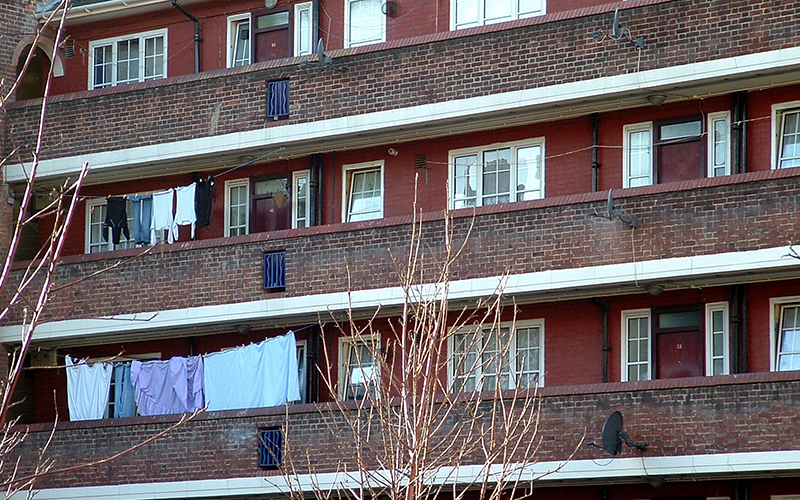By Richard Johnstone | 12 August 2013
Fewer than a quarter of people whose benefits will be cut by the government’s welfare cap will be able to mitigate the effect by taking on more work or moving to cheaper housing, the Local Government Association has said

Image © David Burrows / shutterstock
In an analysis of the government’s welfare reforms, including the introduction of the cap, the LGA found that households claiming benefits would be worse off by £1,615 per year by 2015/16, or around £31 a week, on average.
However, the study, carried out by the Centre for Economic and Social Inclusion for the LGA, found that a shortage of jobs and affordable homes meant almost four of five households require assistance from their council to help them cope with welfare reductions.
Publishing the report, the chair of the LGA's finance panel, Sharon Taylor, said that, in many areas, the jobs ‘simply don't exist’ for those being hit by welfare reform. Opportunities for people to move to smaller homes to cope with reductions in benefits were also severely limited by a lack of affordable accommodation, she added. ‘Unless more is done to create new jobs and homes, households will be pushed into financial hardship and we will see a huge rise in the number of people going to their councils asking for help to make ends meet.’
Taylor urged the government to lift the existing housing borrowing cap, which she said restricted town halls' ability to build more home, as part of its response to the changes. ‘Local government can help generate the necessary jobs and new homes but the government has to give councils more influence over employment schemes and more freedom to borrow to build new houses,’ she added.
The LGA also called for ministers to re-examine the amount made available to councils to provide Discretionary Housing Payments to people who were struggling with housing costs.
It estimated that the combined impact of reforms to Housing Benefit, such as its inclusion in the overall cap and the government’s ‘bedroom tax’, would reduce support to tenants by £1bn a year. However, only £155m has been made available for the support payments, which can be claimed by people who receive Housing Benefit or Council Tax Benefit if they are having difficulty paying the rest of their rent.
Extra money should be made available to reflect the new burden placed on councils as a result of the government’s welfare reforms, Taylor said, otherwise other local services would be hit.
‘Demand for Discretionary Housing Payments would significantly outstrip the money the government has made available to councils to mitigate the changes, she added. This would have a massive impact on local government budgets, which were already stretched to breaking point by the deepest cuts in the public sector. Ministers must ensure councils had enough resources to meet demand.
‘Local services had already taken the biggest cuts in the public sector and it would be wrong if councils had to reduce spending on other services such as caring for the vulnerable and fixing the roads to meet the new costs brought about by these changes to national policy.’
The LGA report was published as the Department for Work and Pensions confirmed that the benefit cap could be fully implemented by the end of next month.
Following pilots of the scheme, which caps total benefits at £500 a week for couples and those with children and at £350 a week for single people, the scheme was rolled out to 300 areas in stages from July. It will be implemented in the final 40 UK council areas from today.
In total, around 40,000 households will have their benefits capped, Work and Pensions Secretary Iain Duncan Smith said.
There is ‘a very clear incentive for people to work’ within the cap, he said, as those claiming the in-work Working Tax Credit will be exempt.
‘The benefit cap is a major step forward in creating a welfare state that actively helps people get back on their own two feet, instead of providing pay-outs that are out of reach of the average hard-working family,’ he added.






















